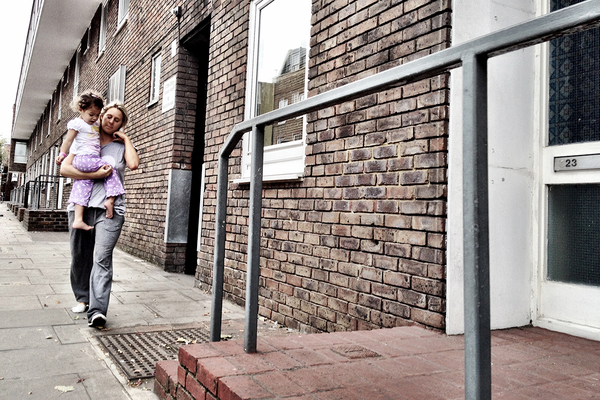You are viewing 1 of your 1 free articles
Right to Rent breaches human rights law, rules High Court
A government scheme to prevent illegal immigrants from renting homes breaches human rights law, the High Court has ruled.
The Right to Rent, introduced in England as part of the Immigration Act 2016, requires private landlords and housing associations to check the immigration status of prospective tenants before letting to them.
Landlords with “reasonable cause to believe” their tenants are in the UK illegally can face prosecution.
In his verdict today, Mr Justice Spencer said the Right to Rent scheme breached the European Convention on Human Rights because it causes discrimination against ethnic minorities and non-UK nationals in the country legitimately.
He argued the Right to Rent “does not merely provide the occasion or opportunity for private landlords to discriminate but causes them to do so where otherwise they would not”.
Discrimination by landlords was “logical and wholly predictable” considering the potential penalties, he added, while “the government cannot wash its hands of responsibility for the discrimination which is taking place by asserting that such discrimination is carried out by landlords acting contrary to the intention of the scheme”.
The ruling does not mean that the Right to Rent must be repealed and the Home Office has the right to appeal.
However, if today’s ruling is upheld or unchallenged, the government is required to amend the legislation to make it compatible with human rights laws, albeit without a set timescale.
The Right to Rent was introduced by Theresa May when she was home secretary as part of the government’s “hostile environment” policy for illegal immigrants.
Today’s judgement follows a case brought by the Joint Council for the Welfare of Immigrants (JCWI), with intervention from the Residential Landlords Association (RLA) and human rights group Liberty.
The decision comes after years of campaigning by campaign groups to stop the policy. In 2017 Inside Housing reported on JCWI’s legal challenge to prevent the policy being rolled out in Scotland and Northern Ireland.
Research by the RLA previously found that 44% of private landlords were less likely to rent to people without a British passport because of the Right to Rent and that 53% were less likely to rent to those with limited time to remain in the UK.
Oxford University academics have also found that the foreign-born population is almost three times more likely to be in the private rented sector than people born in the UK.
John Stewart, policy manager at RLA, said: “Today’s ruling is a damning critique of a flagship government policy.
“We have warned all along that turning landlords into untrained and unwilling border police would lead to the exact form of discrimination the court has found.”
Chai Patel, legal policy director at JCWI, said: “There is no place for racism in the UK housing market. Now that the High Court has confirmed that Theresa May’s policy actively causes discrimination, parliament must act immediately to scrap it.”
A spokesperson for the Home Office said: “We are disappointed with the judgment and we have been granted permission to appeal, which reflects the important points of law that were considered in the case.
“In the meantime, we are giving careful consideration to the judge’s comments.”
Giles Peaker, partner at Anthony Gold solicitors, said: “The court has made a declaration of incompatibility. What that means is that parliament and government are required to look at the scheme again because it’s now officially been found to be in breach of human rights law.
“The court can’t strike down primary legislation on that basis. It’s still in effect, but there is obviously considerable pressure on the government to revisit it and try and come up with something that is compatible, assuming that they don’t win on appeal.”
Inclusive Futures
Inside Housing’s Inclusive Futures campaign aims to promote and celebrate diversity and inclusion.
We are pledging to publish diversity audits of our own coverage.
We are also committed to proactively promoting positive role models.
We will do this through the pages of Inside Housing. But we will also seek to support other publications and events organisations to be more inclusive.
Our Inclusive Futures Bureau will provide a database of speakers and commentators from all backgrounds, for use by all media organisations.
We are also challenging readers to take five clear steps to promote diversity, informed by the Chartered Institute of Housing’s diversity commission and the Leadership 2025 project.












